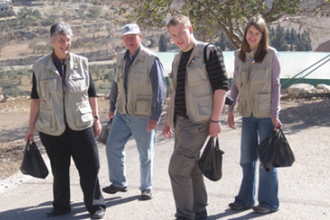Ian Linden: A Wreath for Reith

Lord Reith -Wiki Image
Source: Dr ian Linden
The BBC Reith lectures began under Atlee's Labour Government in 1948 - alongside incidentally the National Health Service. It was a time of proud and creative post-war nationalism when the idea of public services that aimed to enrich the intellectual and cultural life of the nation, and its health, had traction. Public sentiment was much influenced by the recent solidarity of wartime and shared expectations of a better, less class-ridden life.
This year's Reith lectures, given by Professor Ben Ansell, a political scientist based at Nuffield College and Oxford University, takes place in a very different climate; the notion of 'treason of the intellectuals', for example, puts academics in the tumbrils alongside experts and urban elites. Ansell is looking at goals for future government and society: democracy, security, prosperity, and this week, 'solidarity'.
So, even if not broadcast in prime time, the series has all the ingredients for evoking current outrage at the supposed left-wing take-over of the BBC, as well as being a fitting annual tribute to Lord Reith. Especially as Ansell after several years of study in the USA has all the admirable, sometimes irritating, fluency and jargon-free presentation - give or take some flat jokes - of the American academic.
But how pleasing to find the word 'solidarity', and the values it carries, making a comeback beyond its use by Polish trades unionists, Popes and veterans of the 1960s. Even more encouraging is listening to someone who not only diagnoses the pathology of our contemporary them-and-us nationalism and divisive politics but is making a good fist of exploring a remedial strategy.
Despite plenty of evidence-based policy making - he presents surveys of attitudes and opinions of different categories and geographical populations - there is an underlying flaw. He almost touched on it with his reference to people's feelings. He's an academic. His arguments are based on facts not feelings. What he is hoping to remedy is based on emotions cultivated, as he clearly analyses, by powerful and manipulative forces in unaccountable social media and by canny populist politicians. The many who share those feelings will not be won over by facts.
This point is made compellingly by Ash Amin in his impressive 2023 After Nativism: Belonging in an Age of Intolerance Polity Press. Since populism points to a particularly potent form of belonging - he calls it nativist - what set of affective experiences might begin to replace it?
Based partly on research in a very poor peri-urban community in Delhi, the book detracts from the acuity of his vision by an inexorable flow of academese. 'Affordances', 'Phatic', 'Semiotic Associations', and so on, evoke that retro-claim of the old Reader's Digest: 'It Helps to Improve your Word-Power'. This is a pity because he suggests a terrain of social relationships, conviviality, cohabitation, shared travails, in which a different nationalism based on acceptance of diversity and universal values might grow. This would be built on a recognition of the many 'border crossings' created by a specific history of colonialism, reaction to it and its consequences, a plural and multi-cultural society.
There is so much in the UK which is the antithesis of a nativist them-and-us, the rejection of the 'experts and the urban elite', blaming migrants for the results of political choices beyond their control. Here, from my own experience, are two examples of the negotiation of identity and relationship in the rich, ever-changing diversity of life in Britain. Readers will recall their own.
I remember some years ago the elders of the Somali community in Ealing worrying about the vulnerability of some of their children who were troublesome in school. Their initiative resulted in an expert in psychology and religion being asked to put on a course for them. It seemed a good idea to have Somali pop music playing as everyone arrived, a symbol of mutual acknowledgement. The most popular star was recorded and played. Big smiles all round except for one or two elders from the puritanical wing of Islam. Aesthetics matter. Expertise and local knowledge matter too.
Then there was the Catholic school I visited where some of the Muslim girls 'went to Confession'. They explained. "We don't say 'Bless me Father for I have sinned'. So he knows we are Muslim. We just like having a space where we can talk privately". There are more ways of enriching the cultural life of a nation than conceived by Lord Reith. And they are all built on mutual trust.
To read on see: www.ianlinden.com/latest-blogs/a-wreath-for-reith
Professor Ian Linden is Visiting Professor at St Mary's University, Strawberry Hill, London. A past director of the Catholic Institute for International Relations, he was awarded a CMG for his work for human rights in 2000. He has also been an adviser on Europe and Justice and Peace issues to the Department of International Affairs of the Catholic Bishops Conference of England and Wales. Ian chairs a new charity for After-school schooling in Beirut for Syrian refugees and Lebanese kids in danger of dropping out partnering with CARITAS Lebanon and work on board of Las Casas Institute in Oxford with Richard Finn OP. His latest book was Global Catholicism published by Hurst in 2009.


















